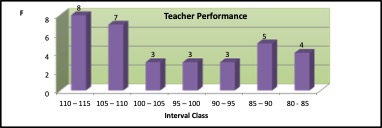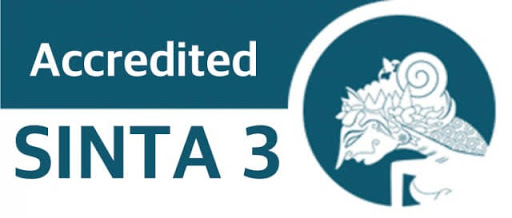Analysis of leadership quality and communication ability towards teacher performance
DOI:
https://doi.org/10.12928/ijei.v2i2.4008Keywords:
communication skills, leadership quality, school principal, teacher performanceAbstract
Many factors can make teacher performance more optimal, for example, the leadership quality and communication skills of the school principal. This article aims to: (1) describe the leadership quality of the principal of the Muhammadiyah Oil and Gas Vocational School in Cilacap; (2) describes the communication skills of the head of the Muhammadiyah Migas Vocational School Cilacap; (3) describe the performance of SMK Muhammadiyah Migas Cilacap vocational teachers; (4) determine the influence of the quality of school principal leadership on the performance of SMK Muhammadiyah Migas Cilacap teachers; (5) find out the influence of school principals' communication skills on the performance of Cilacap Vocational High School Muhammadiyah teachers; and (6) find out the influence of leadership quality and communication skills of principals on the performance of SMK Muhammadiyah Migas Cilacap teachers. This research is a quantitative study using descriptive analysis and multiple regression analysis. The population in this study were 33 teachers in Muhammadiyah Migas Vocational School Cilacap. Data collection techniques used a closed questionnaire method. Descriptive analysis results show that: (1) The quality of the principal's leadership can be classified in good categories, (2) The communication skills of the principal can be classified in either category; and (3) Teacher performance is included in the classification of good categories. Furthermore, the results of the regression analysis showed that: (1) there was a positive influence on the quality of the principal's leadership on the teachers’ performance; (2) there is a positive influence of communication skills on the performance of teachers; (3) and there is a positive influence on the quality of the principals' leadership and communication skills together on the performance of the teachers.
References
Alma, B. (2015). Kewirausahaan. Jakarta: Aksara Baru.
Arikunto, S. (2017). Prosedur penelitian suatu pendekatan praktik. Jakarta: Rineka Cipta.
Azwar, S. (2016). Reliabilitas dan validitas. Yogyakarta: Pustaka Pelajar.
Byars, L. L., & Rue, L. W. (2004). The culture of the school and the problem of change (2nd ed.). Boston: Allyn & Bacon.
Creswell. J. W. (2017). Research design pendekatan metode kualitatif, kuantitatif, dan campuran. Yogyakarta: Pustaka Pelajar.
Faisal, S. (2013). Format-format penelitian sosial. Jakarta: PT. Raja Grafindo Persada.
Ghozali, I. (2006). Aplikasi analisis multivariate dengan program SPSS. Semarang: Badan Penerbit UNDIP.
Kartono, K. (2016). Pemimpin dan kepemimpinan. Yogyakarta: Grafindo Persada.
Landy & Fajar. (2003). The measurement of work performance: Methods, theory, and applications. New York: Academic Press.
Marsongko, H. M. J. (2009). Kepemimpinan kepala sekolah dalam meningkatkan mutu pendidikan sekolah studi kasus tentang manajemen kepala sekolah di SD Muhammadiyah Wonorejo Polokarto. Thesis. Program Studi Teknologi Pendidikan; Program Pascasarjana Universitas Sebelas Maret Surakarta.
Martoyo. (2014). Manajemen sumber daya manusia edisi 4. Yogyakarta: BPFE.
Merry, A., Wendy, M. Y. (1994). Intruduction measurement theory. California: Brooks/Cole Publising Company.
Moqvist, L. (2003). A study of top managers work practices in Swedish public administration A learning perspective. Sweden: Linköping University.
Mulyasa, E. (2017). Manajemen berbasis sekolah, konsep strategi, dan implementasi. Bandung: Remaja Rosdakarya.
Robbins, R. (2008). Dimensions of organizational behavior. New Jersey: Prentice.
Sagala, S. (2013). Kemampuan profesional guru dan ketenagaan kependidikan. Bandung: Alphabeta.
Somad, R & Priansa, D. J. (2014). Manajemen supervisi dan kepemimpinan kepala sekolah.
Sugiyono. (2014). Metode penelitian administrasi. Bandung: Alfabeta.
Supraktinyo. (2015). Tinjauan komunikasi antarapribadi. Yogyakarta: Kanisius.
Suryabrata, S. (2011). Metodologi penelitian. Yogyakarat: Universitas Gadjah Mada.
Terry, R. G. (1992). Principles of management. Jakarta: Bumi Aksara.
Undang-undang Republik Indonesia No. 20 Tahun 2003. Tentang sistem pendidikan nasional (Sisdiknas). Bandung: Citra Umbara.
Undang Undang Guru dan Dosen. 2005. UU No 14 Tahun 2005 tentang Guru dan Dosen.
Wildan, M. N., & Malik, N. (2017). Kajian model kepemimpinan kepala sekolah. Jurnal. Makasar: Program Studi Pendidikan Teknologi dan Kejuruan, Program Pascasarjana Universitas Negeri Makassar.
Zain, A., & Bahri, D. (2017). Strategi belajar mengajar. Jakarta: PT. Rineka Cipta.

Downloads
Published
How to Cite
Issue
Section
License
Copyright (c) 2022 Eni Kuswati, Muhammad Sayuti, Tri Kuat

This work is licensed under a Creative Commons Attribution-ShareAlike 4.0 International License.
Authors who publish with this journal agree to the following terms:
- Authors retain copyright with the work simultaneously licensed under a Creative Commons Attribution License that allows others to share the work with an acknowledgement of the work's authorship and initial publication in this journal.
- Authors are able to enter into separate, additional contractual arrangements for the non-exclusive distribution of the journal's published version of the work (e.g., post it to an institutional repository or publish it in a book), with an acknowledgement of its initial publication in this journal.
- Authors are permitted and encouraged to post their work online (e.g., in institutional repositories or on their website) prior to and during the submission process, as it can lead to productive exchanges, as well as earlier and greater citation of published work (See The Effect of Open Access).




